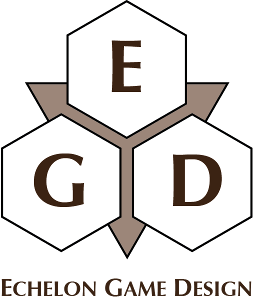In the earlier, d20-based design I had the normal three saving throws: Fortitude, Reflex, and Will. The bonuses scaled with level using the Level Bonus, and talents could increase them further. Saving throw talents also granted other benefits such as increased hit points and increased magic points.
In switching to dice pools instead I have to change this a bit, but it turns out it might not be so much.
Common Save Effects
Improving saves has two effects for each save. One bumps the relevant save, so you roll bigger and better dice. The other provides another benefit: more hit points, more swift/immediate actions, and more magic points, respectively.
Fortitude Saves
Fortitude… toughness, endurance, stamina.
First, any talent that increases your Fortitude would bump your Fortitude dice. How could it not? This makes you more resistant to systemic dangers such as poison, disease, and (most) death magic. Fortitude rolls are also used for endurance and stamina tests. It doesn’t do a lot to help you when you get hurt unless it’s one of these things, though.
Second, you should be able to withstand more damage. Let’s say that each bump gives you one additional hit point. In the d20 model hit points were calculated and took into account Fortitude bonuses and martial training bonuses. Martial training bonuses have gone away, but since active defense means you can directly prevent damage combat skill still applies (and if you’re using passive defense your skill arguably is not relevant) so it still works.
Individual talents may have additional, qualitative effects, but these are the two primary benefits of improving Fortitude.
Reflex Saves
Reflex… quickness, agility, avoiding danger.
First, bump the Reflex dice, obviously. This helps you get out of the way of danger. This also helps on initiative checks, since they really amount to a contested Reflex check.
Second… perhaps it increases the number of swift/immediate actions each round? This would be quite a big help to those using active defense. A tanked up character might fall back on passive defense when he gets mobbed, but a nimble roguish character can’t count on this. Having each bump give an additional action is clearly way too much, though. Perhaps constrain it to a number of additional actions equal to your tier.
Individual talents may have additional, qualitative effects, but these are the two primary benefits of improving Reflex.
Will Saves
Will… mental endurance, mostly. Strong-willed stubbornness, if you like.
First, bump the Will dice. This lets you stand up to things that would crush your mind. It doesn’t directly help your spell casting, which uses different talents.
Second, I’m tempted to have this increase your magic points the same way Fortitude bumps improve your hit points. It provides a nice parallel between them and supports the idea that spell casters tend to be mentally resilient.
On the other hand, the obvious natural place to get magic points would be from casting talents… and I like the idea of mad cultists that are easily (or already) unhinged but magically powerful.
Thankfully, not a contradiction, since effects of talents from the same group (cornerstone, common, capstone) don’t stack. Biggest cornerstone plus biggest common plus biggest capstone, and call it done. It does mean that in terms of magic points there’s no cause to take both, but that’s okay, that’s why it’s like that. I don’t want to make either one mandatory for base effect like that.
Individual talents may have additional, qualitative effects, but these are the two primary benefits of improving Will.
Sample Saves
The deceitful baron invited the heroes to dinner and managed to poison them. The poison is vicious, doing 3/4 damage (3 base plus 4 per degree of success) vs. Fortitude to those who drink it. The poisoner’s roll is 4d10 (2, 7, 10, 5) for three successes.
- The wizard rolls poorly: 3d8 (1, 6, 3) and accepts the complication in order to keep at least one success (degree of success is 2, so the wizard takes 3+4*2 = 11 points of damage). Luckily the wizard is tenth level (D&D second, basically) and has 12 hit points. He’s not dead, but at 1 hit point he kind of wishes he was as he spends some time retching his guts out (complication).
- The rogue is an accomplished poisoner himself and somewhat luckier: 2d10+d8 (5, 5, 3). The degree of success is only 1, but the Poison Use talent that toughened him up (the 2d10 part of his Fortitude save) means he reduces the damage by 2 points. He takes 5 points of damage of his 14 hit points, leaving him with 9 hit points. “Shadrake Distillation” he grates as he gets up, drawing his dagger.
- The barbarian is a hardier soul: 3d12 (7, 12, 10). He’s not specifically inured to poison, though, so takes the normal base damage of 3 points. This reduces him from 21 hit points to 18. “You have the honor of a diseased cur, you scum,” he snarls. He had to leave his axe outside, but this heavy iron candleholder will serve well enough as a club.
Closing Comments
The above are not themselves talents yet. They are fragments, things that apply to talents that improve the save rolls. All of them can be attractive to certain types of characters, but none are critical to any. I’ll have to see how things shake out as these get applied, though.
